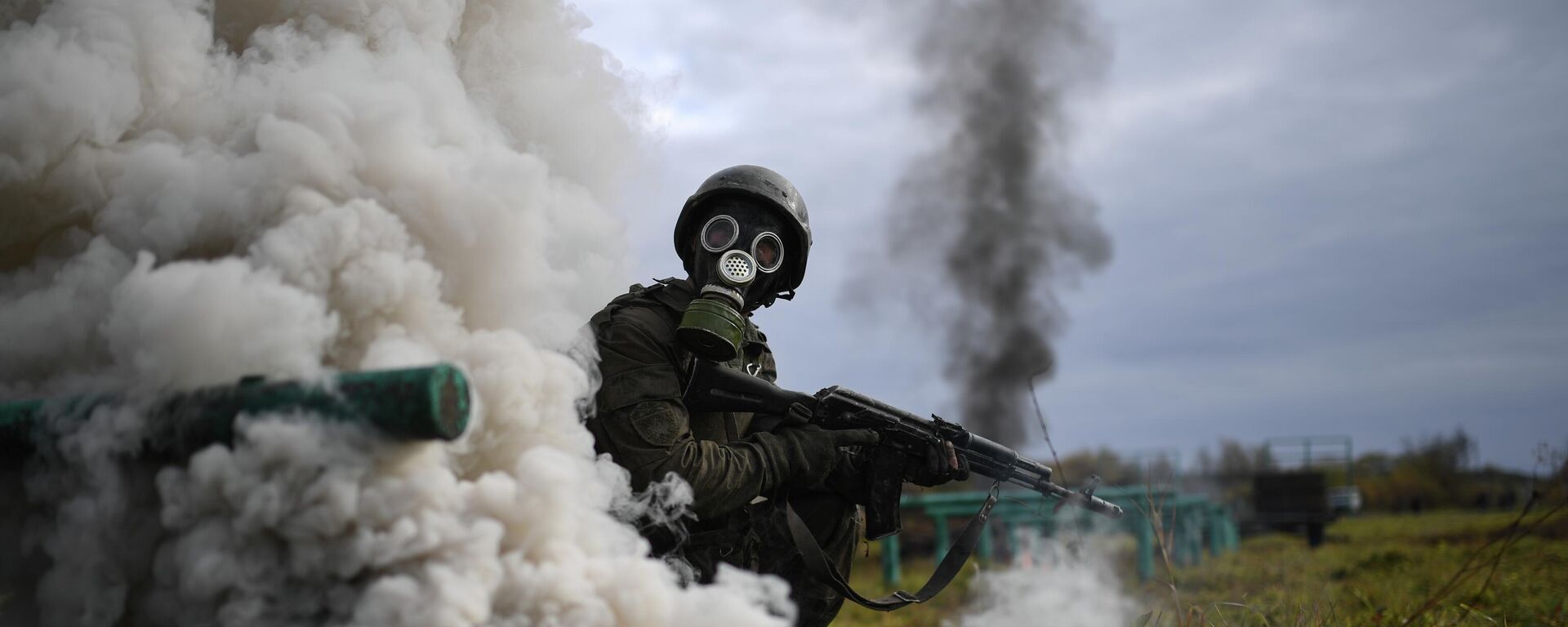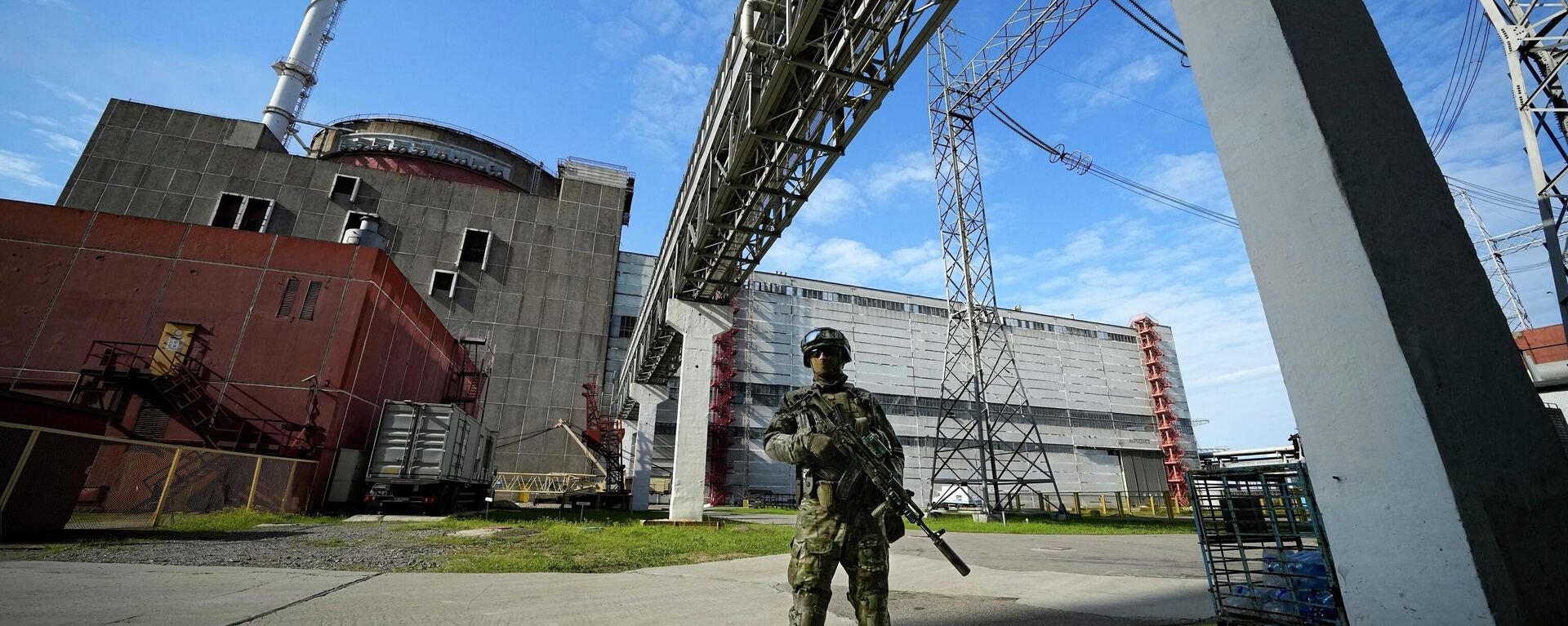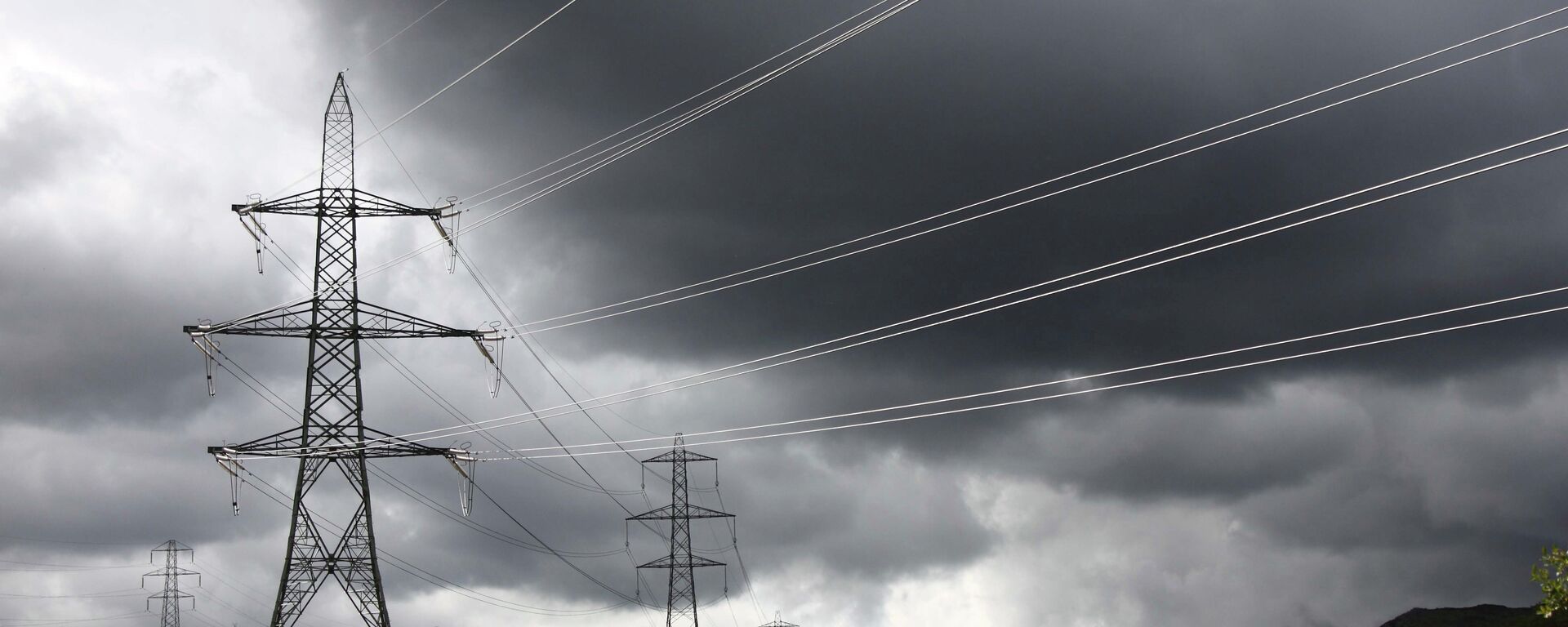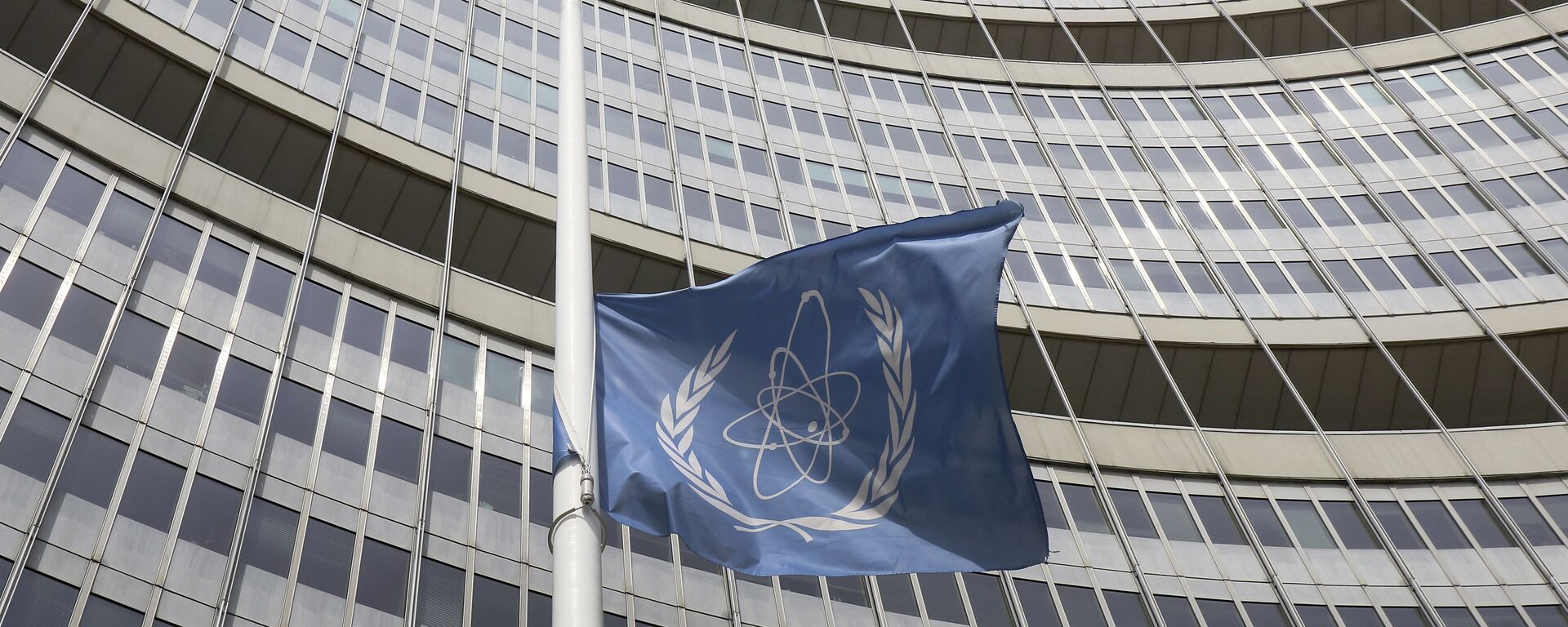IAEA in Contact With UN, Russia and Ukraine, Will Focus on 2 Sites For Nuclear Deviation - Grossi
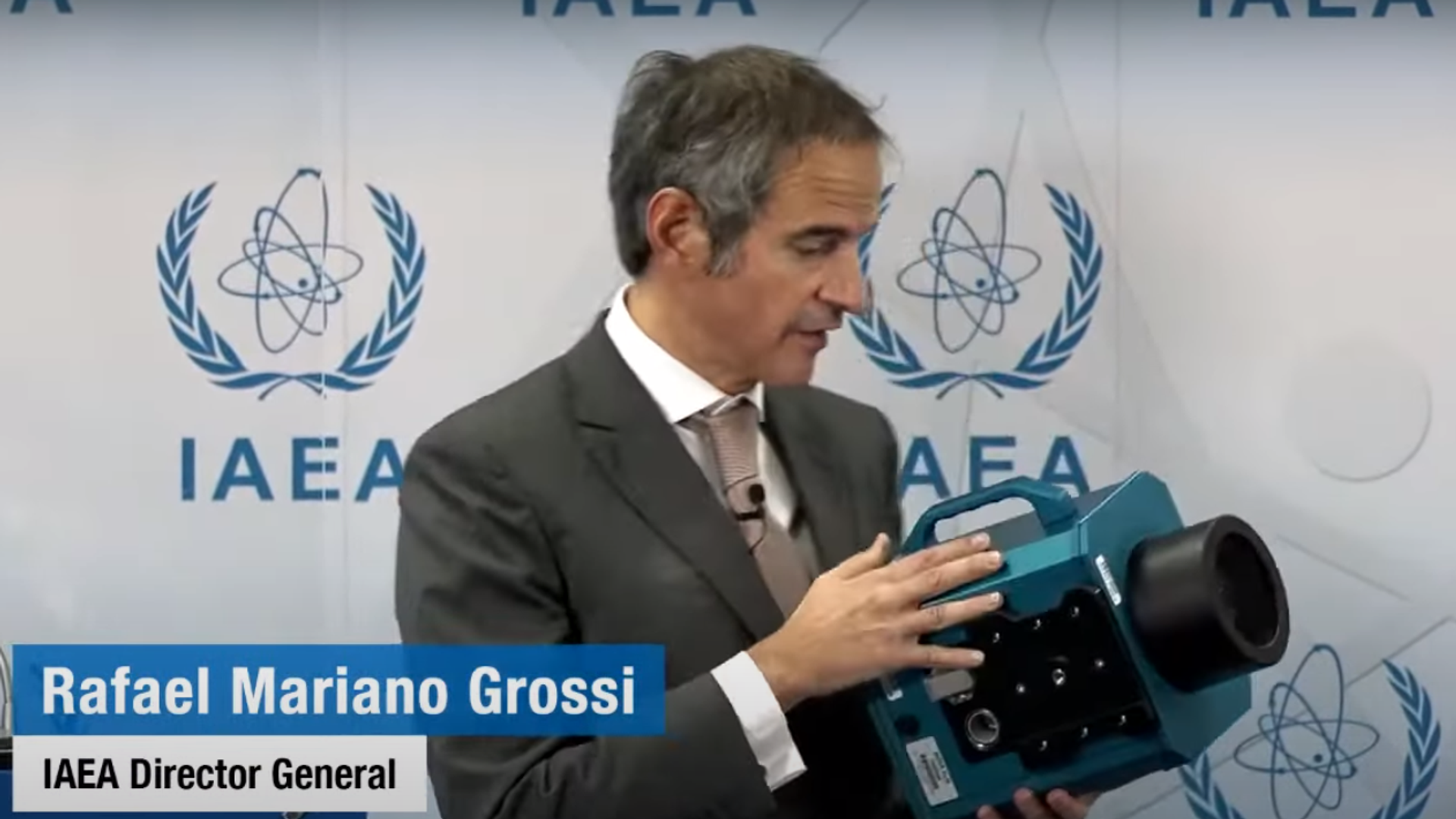
© Photo : YouTube / IAEAvideo
Subscribe
WASHINGTON (Sputnik) - International Atomic Energy Agency (IAEA) Director General Rafael Grossi told Sputnik on Wednesday the agency's plan to concentrate on two sites for a potential nuclear material deviation in Ukraine, the common understanding to protect the ZNPP, his expectation to visit the UNSC, and ongoing dialogue between Moscow and Kiev.
Grossi announced earlier in the week that IAEA experts are preparing to visit two nuclear facilities in Ukraine in the coming days following Russian statements about alleged activities. This came on the heels of Moscow's allegation that Ukraine has created a dirty bomb. The IAEA also said he received a written request from Ukrainian Foreign Minister Dmytro Kuleba to carry out verification inspections at the two locations.
"Well, what we are doing is based on what transpired during the weekend on the basis of I believe some statements of the Minister of Defense of the Russian Federation. And upon this, there was an invitation from the foreign minister of Ukraine to do this, so I don't know about other sites or activities on other sites, we are at the moment concentrating on these and if something happens in future, of course, you know, the IAEA is an impartial institution that inspects and tries to determine the facts, you know, so this is the effort that we are going to try to carry out," he said.
Kremlin spokesman Dmitry Peskov said on Wednesday, commenting on Grossi's plans to visit Ukraine amid "dirty bomb" reports that Russia is in a very constructive dialogue with the agency and plans to further maintain it.
IAEA will head to Kiev and Zhovti Vody in the coming days after Russia's warnings about Ukraine preparing a "dirty bomb," Russian Permanent Representative to International Organizations in Vienna Mikhail Ulyanov said on Tuesday.
As a rule, the preliminary results of these visits will be within about a week, and the final ones will not appear soon, the diplomat added.
Lt. Gen. Igor Kirillov, who heads the Russian radiation, chemical and biological defense forces, said on Monday that the Russian Defense Ministry had well-sourced information about Kiev's plans to use a "dirty bomb" and blame Moscow for this. Foreign ministers of France, the United Kingdom, and the United States dismissed these claims in a joint statement later in the day.
Russian Defense Minister Sergei Shoigu had several calls with his foreign counterparts to discuss the dangers of the use of a "dirty bomb" by Kiev. Russia is also seeking to convene a meeting of the UN Security Council on the issue.
A dirty bomb is a radiological weapon in a form of a container with radioactive materials and an explosive charge. Such weapons disperse radioactive material over large areas when they explode, thus contaminating the environment and the population.
According to the Russian Defense Ministry, if Ukraine detonates the dirty bomb, radioactive isotopes will spread in the atmosphere to a range of up to 1,500 kilometers (930 miles) and can cover Poland.
Common Understanding Between Kiev & Moscow to Protect ZNPP
Grossi told Sputnik on Wednesday he thinks that there is a common understanding between Ukraine and Russia on protecting the Zaporozhye Nuclear Power Plant (ZNPP).
"And, of course, in spite of the differences which are obvious because the two countries are at war, I think there is a common denominator in that the facility needs to be protected," Grossi said.
When asked whether there is a good chance to introduce a safety zone around ZNPP, Grossi said, "I am optimistic."
Grossi said earlier in October that it is possible to reach an agreement on a safety and security zone around the Zaporozhye Nuclear Power Plant (NPP) by the end of the year,
In early September, an IAEA mission led by Grossi arrived at the Zaporozhye NPP. The head of the Rosatom delegation and the ZNPP staff led the delegation through its territory and showed sections damaged during shelling on the part of Ukrainian troops.
Two IAEA employees remained at the ZNPP on a permanent basis. After the visit, the IAEA published a report in which it confirmed the ZNPP was shelled.
Grossi met with Russian President Vladimir Putin on October 11. The Russian president said he was open to dialogue and also appreciated Grossi's direct communication with Moscow and Kiev. Putin proposed to Grossi to discuss the situation at the Zaporozhye nuclear power plant during the meeting, adding that Moscow is "ready to solve all issues."
Russia and Ukraine have repeatedly blamed each other for shelling the Kakhovka HPP located 5 kilometers (3.1 miles) from the city of Nova Kakhovka. Earlier in October, Moscow said that Kiev was planning to launch massive missile strikes against the plant, and urged the UN Security Council to prevent its destruction, citing possible causalities among civilians. Ukraine, in turn, said that the Russian military had mined the dam and units of the Kakhovka HPP.
The Zaporozhye NPP, located on the left bank of the Dnieper River, is the largest nuclear power plant in Europe in terms of the number of units and output. During the military operation in Ukraine, launched by Russia on February 24, the facility and the surrounding area fell under the control of Russian forces.
The NPP has recently been targeted by multiple shelling, raising international concerns over a possible nuclear accident. Russia and Ukraine have been accusing each other of shelling the facility.
Grossi Expects Formal Invitation to UNSC
Grossi told Sputnik on Wednesday that he is expecting a formal invitation to the UN Security Council meeting on Ukraine to be held tomorrow.
"I am expecting an invitation," Grossi said. "It remains to be seen whether I'm going to be there. I need to be invited to the Security Council. So I hope, if they invite me, I am always at the disposal of the council to provide information... if there is an invitation, you know, we have a policy of full transparency to share information."
Grossi noted that he has been briefing the Security Council, at least twice in the course of the year on the situation in Ukraine and on other topics including Iran.
Grossi is currently in Washington, DC where he is participating in the IAEA ministerial conference on nuclear power in the 21st century from October 26-28.
Grossi in 'Permanent Dialogue' With Moscow Over Situation in Ukraine
IAEA Director General Rafael Grossi is in permanent dialogue with Moscow over the situation regarding alleged activities around nuclear facilities in Ukraine, he told Sputnik on Wednesday.
Grossi said IAEA experts will visit two sites in Ukraine after statements from Russia about the creation of a dirty bomb and an invitation from Kiev.
"I'm having a permanent dialogue. You come from Russia. You know, I was with your president a few days ago in St. Petersburg, and I have also regular dissertations with foreign minister Sergey Lavrov, and the president of a state company, Rosatom Alexei Ligature, we are in permanent contact, and I am contact as well with Ukraine. So this is what is expected from an international organization, impartial, to be talking to every side in order to perform our mission," Grossi said when asked about contacting Russia after the visit to Ukraine.

